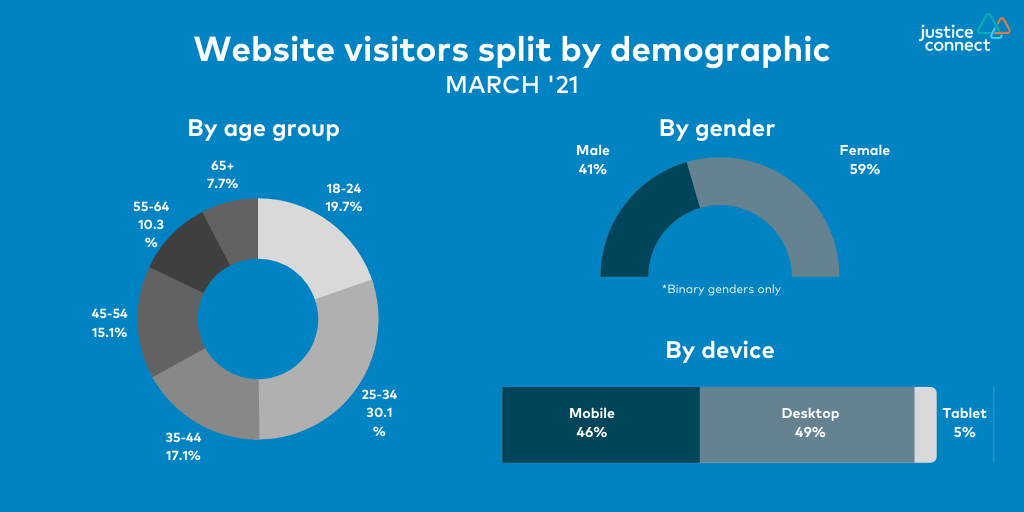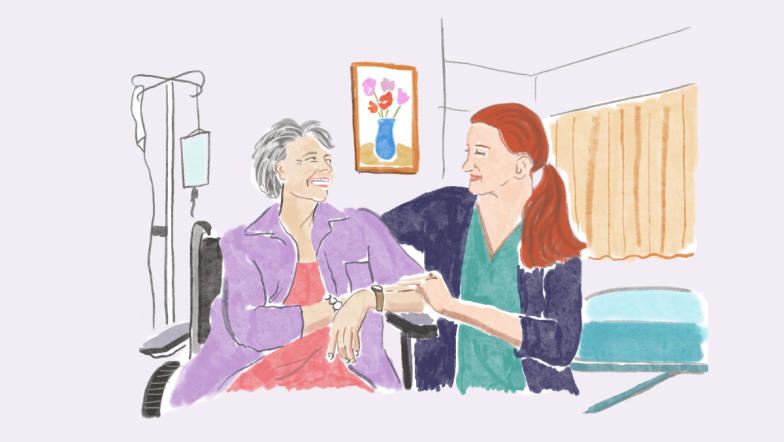Insights from our March COVID-19 response
6 May 2021
This is our eleventh report on our targeted response to COVID-19 related legal problems for individuals. Sharing our insights helps us reflect on where the current legal need lies, and adapt our service delivery to fill gaps and improve the help-seeker experience. You can read all of our past reports on our Fair Matters blog.
This report will cover the period from 1 – 31 March 2021.
Our data on demand for legal help in March
We had 35.5K unique visitors to our website in March, which is up 32% from our visitors in February. We saw the average pages visited per session climb from 2.3 minutes in February to 3.1 minutes in January. People were also spending 20% longer during their sessions.
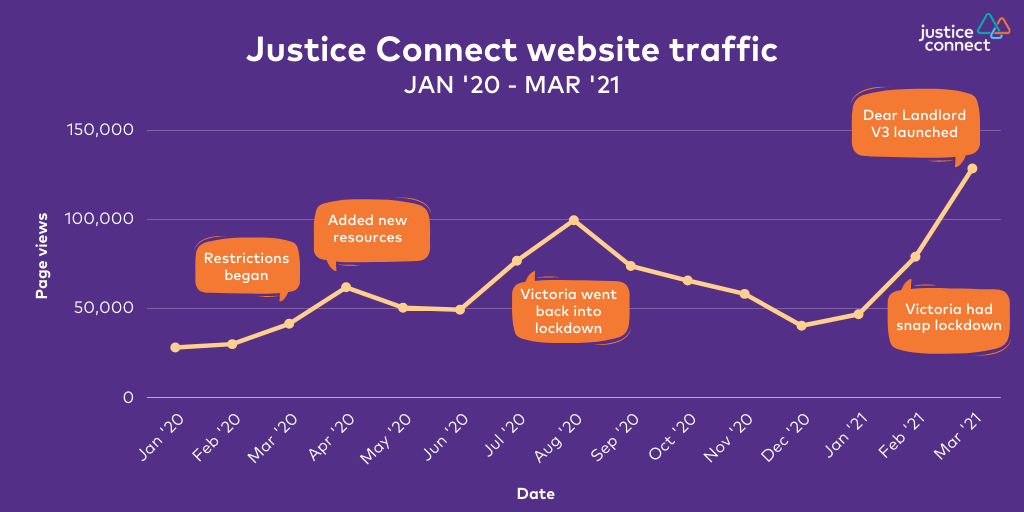
Our targeted digital consumer outreach saw us reach 304,266 people (a 115% increase from February). We also trialed using Google Display as a method of digital consumer outreach, which has so far brought 1,500 new users to our website.
Female visitors to our website increased from 56% in Feb to 59% in March, and more people accessed our website from tablet devices. The age split of users remained relatively similar to February.
Over at Justice Connect Answers, our free online legal clinic available to people needing answers to their simple legal questions, we had a 22% increase in the number of questions asked (from 37 in February to 45 in March).
Of these, the highest proportion of questions related to housing and residential tenancies (20%). This marks a 50% increase (from 6 in February to 9 in March). The second highest proportion of questions were related to public and administrative law (17%). Questions about work accounted for 16% (up from 11% last period).
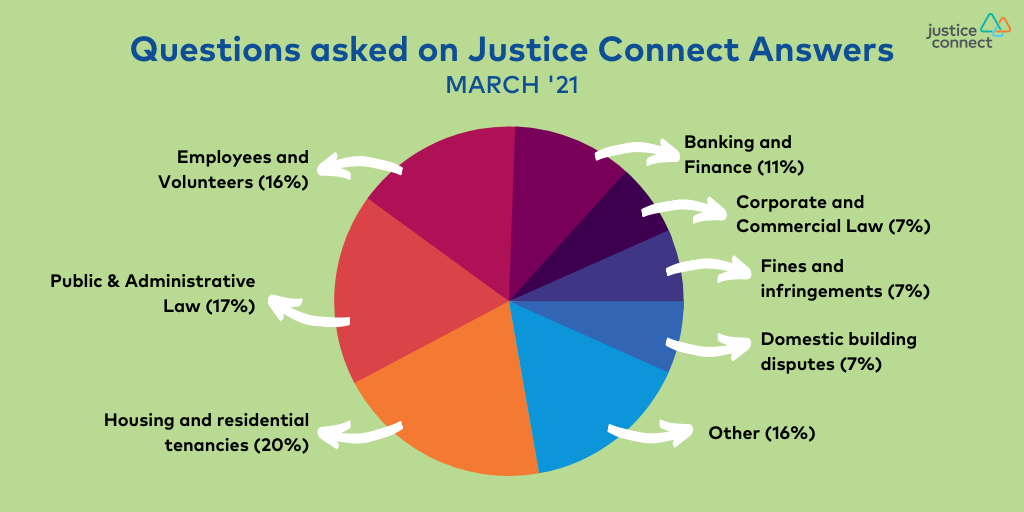
Across our services, we had a total of 251 enquiries in March (up from 222 in February).
Our Homeless Law program had a total of 93 enquiries; 67 of which were tenancy related. This marks an 88% increase in overall enquiries. We’ve also noticed a particular increase in enquiries about evictions, which climbed from 39% of all enquiries last month to nearly half of all enquiries this month. This is worrying but not unexpected, due to the end of Victoria’s eviction moratorium on 29 March, Jobseeker supports being pushed below the poverty line and the end of the JobKeeper program. We’ve also been actively engaging in digital consumer outreach to promote our latest version of Dear Landlord and let the community know about the changes to the laws.
In addition to Justice Connect Answers and our Homeless Law program, we also received a total of 83 general enquiries (up from 75 in February); 23% of which were fair work and employment related.
Launching Dear Landlord V3 in parallel with Victoria’s new tenancy laws
In anticipation of rising legal need related to tenancy issues, on March 29 we also launched a significantly updated version of Dear Landlord – our free self-help tool for renters in Victoria with rental arrears – to coincide with Victoria’s new laws. Alongside the tool, we launched an accompanying video and digital campaign designed to explain what the new tenancy reforms and eviction process mean for renters and how they can take action to protect their housing. The launch resulted in a large spike of traffic to Dear Landlord.
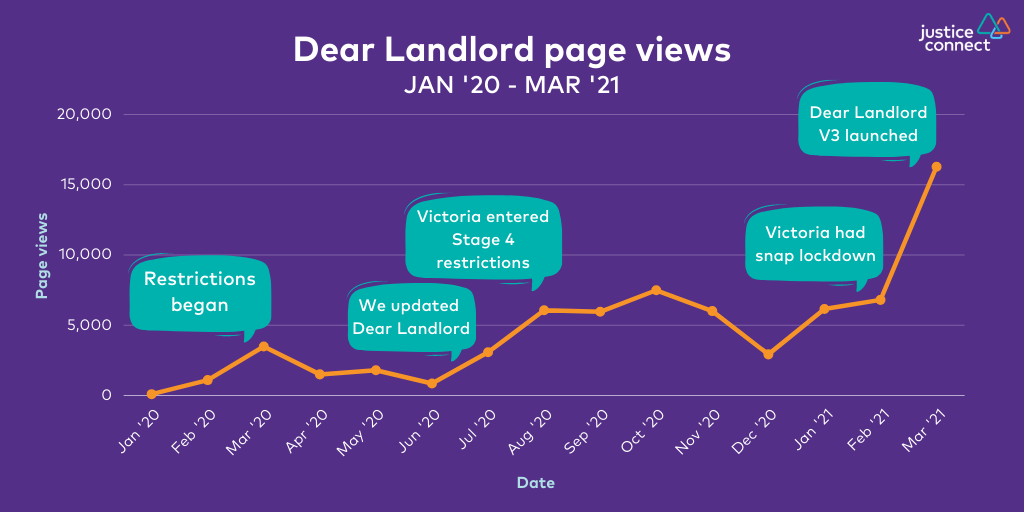
Note: Our previous version of Dear Landlord was built on a single page (meaning we received one page view per user) whereas the new version of Dear Landlord is multi-page (meaning we can now receive more than one page view per user, and each session now generates multiple page views per use on average).
Our new version of Dear Landlord allows people to generate bespoke documents to help them avoid an eviction based on the information they have provided in the tool. Documents include letters to rental providers to negotiate payment plans and applications for review hearings at VCAT. The tool asks a few simple questions about the renters’ situation (including whether or not they have received a Notice to Vacate, or if they have commenced proceedings with VCAT) and then equips them with the necessary tailored guidance and customised documents to take action. Going forward, we will be able to offer further insights into the types of documents being generated. This report’s data only covers three days from launch (29 March to 31 March) which means the split between the types of documents is somewhat even. We will be able to see a more accurate reflection of the types of outcomes people are getting when using Dear Landlord in our next report back.
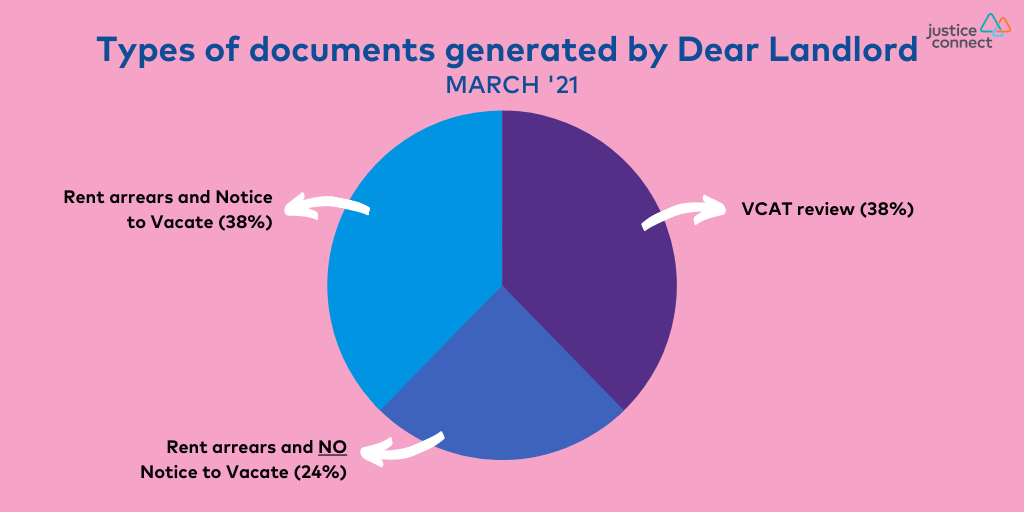
How people found and used self-help resources
As usual, our Victorian Government COVID-19 emergency powers resource was the most accessed, with over 6K pageviews in March. More than half of the pageviews to this resource came from Paid Search results. We also witnessed a large increase in views to our Queensland Government version of the resource, due to the 3-day lockdown in Greater Brisbane from 28 March – 30 March.
To mark the changes to the Residential Tenancies Act in Victoria from 29 March, we published a new resource with up-to-date information for renters, which was viewed nearly 1,200 times in just 3 days.
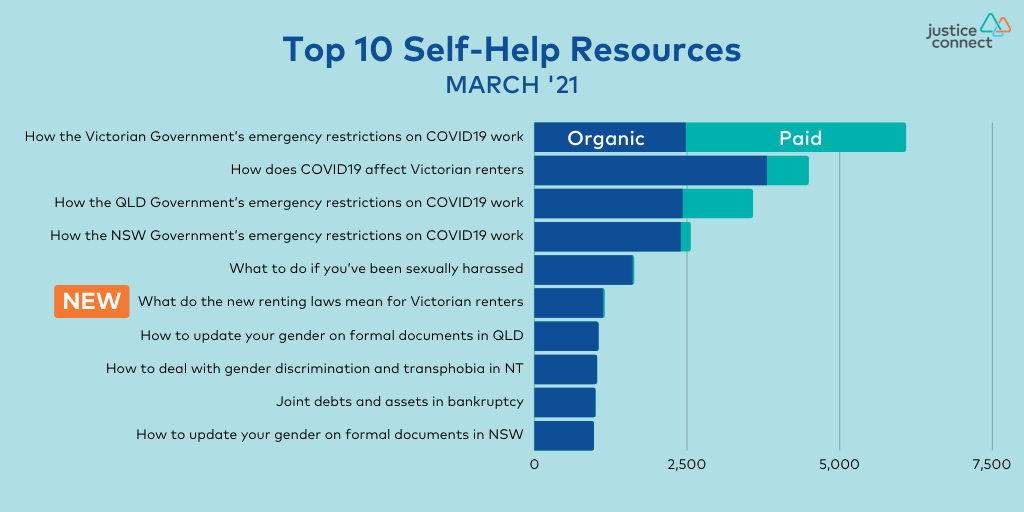
There was a distinct increase in people accessing self-help resources related to financial troubles (indicated in blue below), which correlates with the end of the JobSeeker coronavirus supplement on the 31 March. Specifically, our resources related to bankruptcy and ‘what to do when you receive a default notice on your home loan’ have been the most popular. We’re continuing to monitor the increasing interest we’re seeing in resources related to employment issues, which mirrors the increase we saw in questions about employment on Justice Connect Answers (see above).
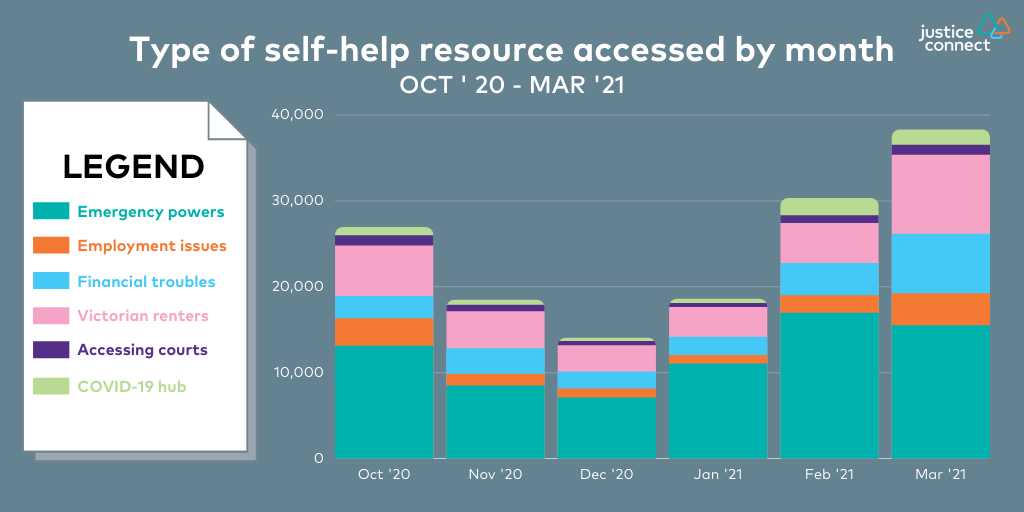
Next month’s report will mark 12 months of our COVID-19 campaign response. We look forward to bringing you more insights on legal service delivery and emerging trends. If you’d like to stay connected with us, please subscribe to our mailing list.
